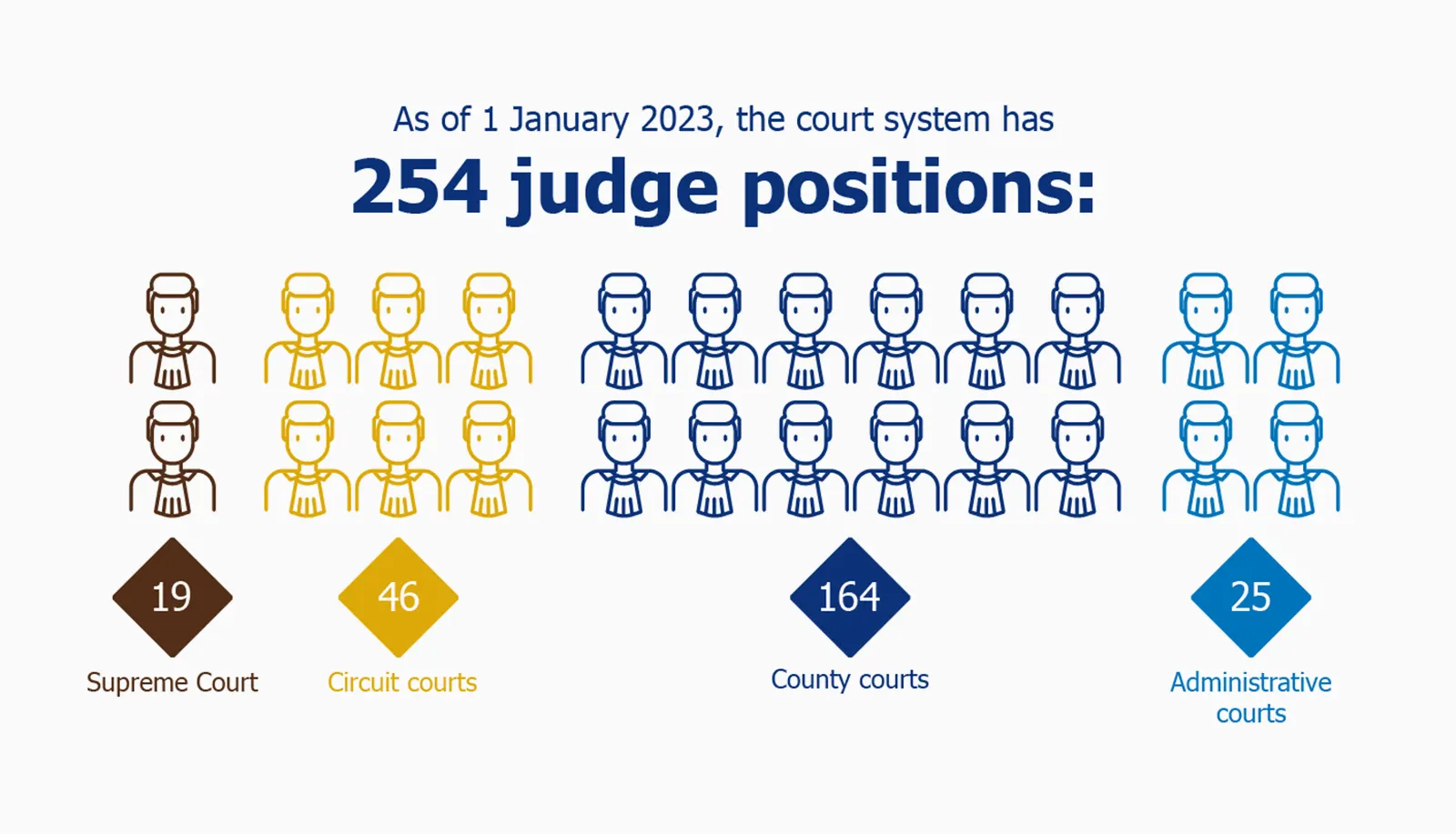 Riigikohus on Eesti Vabariigi kõrgeim kohus.
Riigikohus on Eesti Vabariigi kõrgeim kohus.
Põhiseaduse kohaselt on Riigikohus kassatsioonikohus ja
põhiseaduslikkuse järelevalve kohus. Riigikohtu pädevus
on sätestatud kohtute seaduses. 
Primary tabs
Estonian courts yearbook focusses on the future of judges
The issue that permeates the latest Estonian courts yearbook is the next generation: who is seen as the future of judges in the country, and what benefits, assurances and development opportunities need to be offered to fill the large number of impending vacancies with outstanding lawyers, thereby reinforcing quality in the administration of justice?
In his foreword to the yearbook, Chief Justice of the Supreme Court Villu Kõve notes that as in society more broadly, the Estonian court system faced one crisis after another in 2022, emerging from the pandemic only to encounter a worsening security situation. “Russia’s invasion of Ukraine had the greatest impact on courts hearing civil cases,” he writes. A total of 365 family matters came up for review in county courts during the year, the majority of which involved the appointing of guardians for minors.
The Chief Justice says he is pleased the courts coped so well in managing the crises and adapting to the rapidly changing situations.
Viewing the court system from within, however, Kõve says there is no ignoring the changing of the guard among Estonia’s judges. There are almost 250 judges in the country at present, of whom one in every five is due to retire within the next five years. This has led to growing concern about the next generation. “Unfortunately, the courts are already facing difficulties in finding outstanding lawyers to fill vacancies,” Kõve admits.
Elsewhere in the yearbook, Professor Salvija Mulevičienė from Mykolas Romeris University in Lithuania provides an overview of a study into the selection, assessment and promotion of judges in EU Member States, while county court justices Astrid Asi, Liivi Loide, Liina Naaber-Kivisoo and Toomas Talviste discuss how to modernise the management of the court system and make courts more attractive as employers whilst guaranteeing their autonomy.
Also contributing to the yearbook is Tallinn Administrative Court judge Janek Laidvee, who casts a critical eye over the consequences of abolishing the old age and incapacity pensions for judges. He says the cuts made to social guarantees 10 years ago have made the judge’s profession significantly less attractive and argues that sufficient social guarantees (including occupational pensions) are needed to ensure the independence of judges and to prevent the risk of corruption. Moreover, he adds that the draconian restrictions imposed on judges’ activities all but stop them from earning any additional income that would support them in their retirement.
Also sharing their thoughts in the yearbook are Judicial Training Council chairperson Margit Jõgeva and Supreme Court Legal Information and Judicial Training Department director Liina Reisberg, who ask what kind of training is good training, and Ethics Council member Andra Pärsimägi, who explains why judges require a code of professional ethics.
Last but not least, Kristi Kirsberg, the head of communications for Estonian courts, outlines what her work involves. Some statistics on court activities in 2022 is also provided.
The Estonian courts yearbook is published electronically and can be found here: https://aastaraamat.riigikohus.ee/en/


